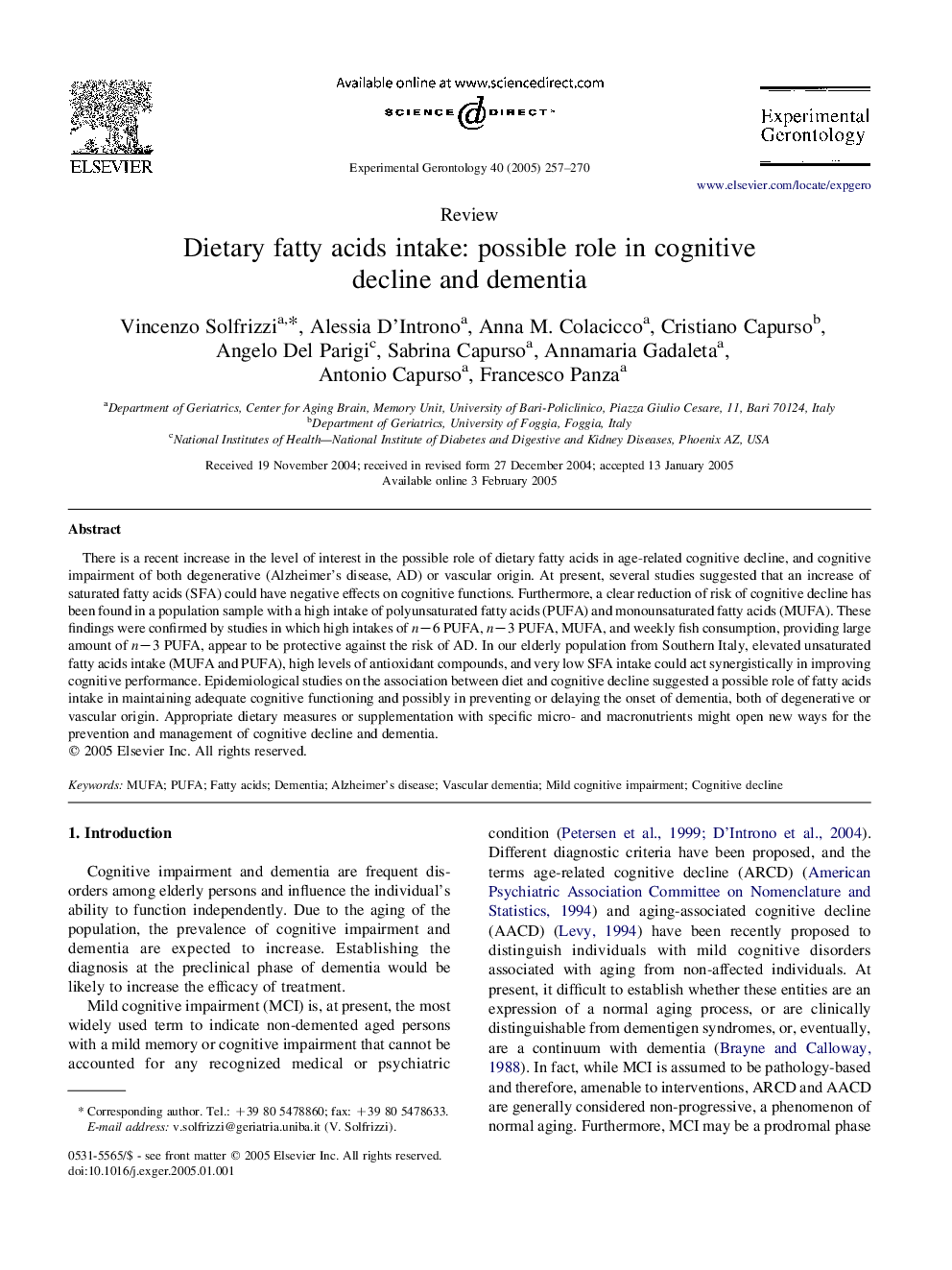| Article ID | Journal | Published Year | Pages | File Type |
|---|---|---|---|---|
| 10737324 | Experimental Gerontology | 2005 | 14 Pages |
Abstract
There is a recent increase in the level of interest in the possible role of dietary fatty acids in age-related cognitive decline, and cognitive impairment of both degenerative (Alzheimer's disease, AD) or vascular origin. At present, several studies suggested that an increase of saturated fatty acids (SFA) could have negative effects on cognitive functions. Furthermore, a clear reduction of risk of cognitive decline has been found in a population sample with a high intake of polyunsaturated fatty acids (PUFA) and monounsaturated fatty acids (MUFA). These findings were confirmed by studies in which high intakes of nâ6 PUFA, nâ3 PUFA, MUFA, and weekly fish consumption, providing large amount of nâ3 PUFA, appear to be protective against the risk of AD. In our elderly population from Southern Italy, elevated unsaturated fatty acids intake (MUFA and PUFA), high levels of antioxidant compounds, and very low SFA intake could act synergistically in improving cognitive performance. Epidemiological studies on the association between diet and cognitive decline suggested a possible role of fatty acids intake in maintaining adequate cognitive functioning and possibly in preventing or delaying the onset of dementia, both of degenerative or vascular origin. Appropriate dietary measures or supplementation with specific micro- and macronutrients might open new ways for the prevention and management of cognitive decline and dementia.
Keywords
Related Topics
Life Sciences
Biochemistry, Genetics and Molecular Biology
Ageing
Authors
Vincenzo Solfrizzi, Alessia D'Introno, Anna M. Colacicco, Cristiano Capurso, Angelo Del Parigi, Sabrina Capurso, Annamaria Gadaleta, Antonio Capurso, Francesco Panza,
